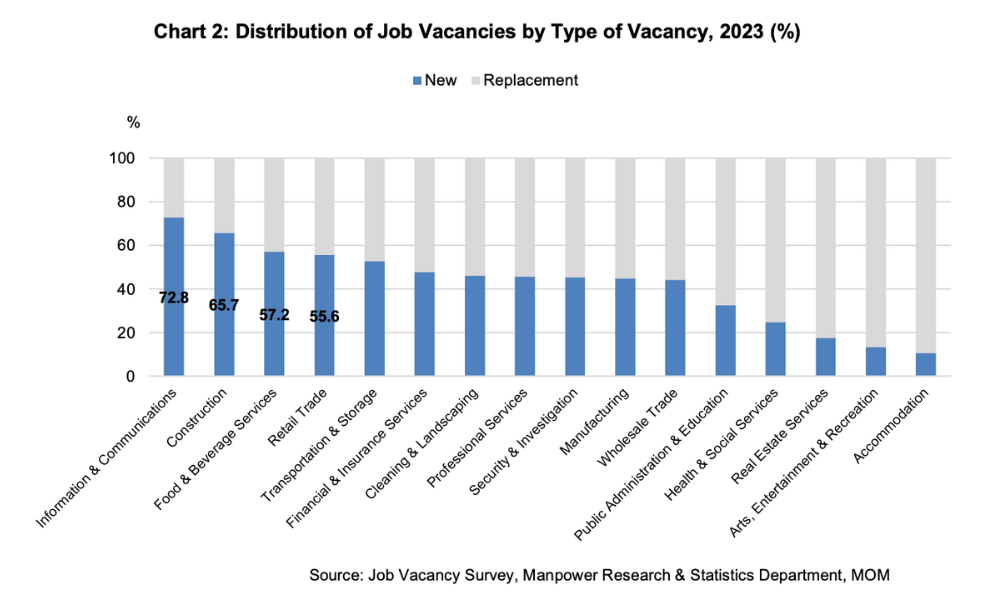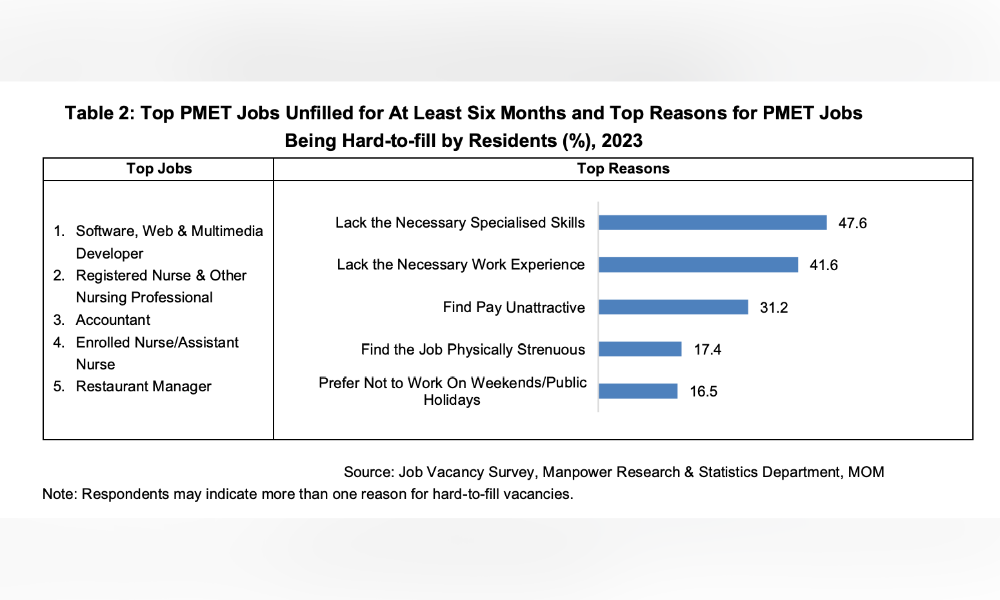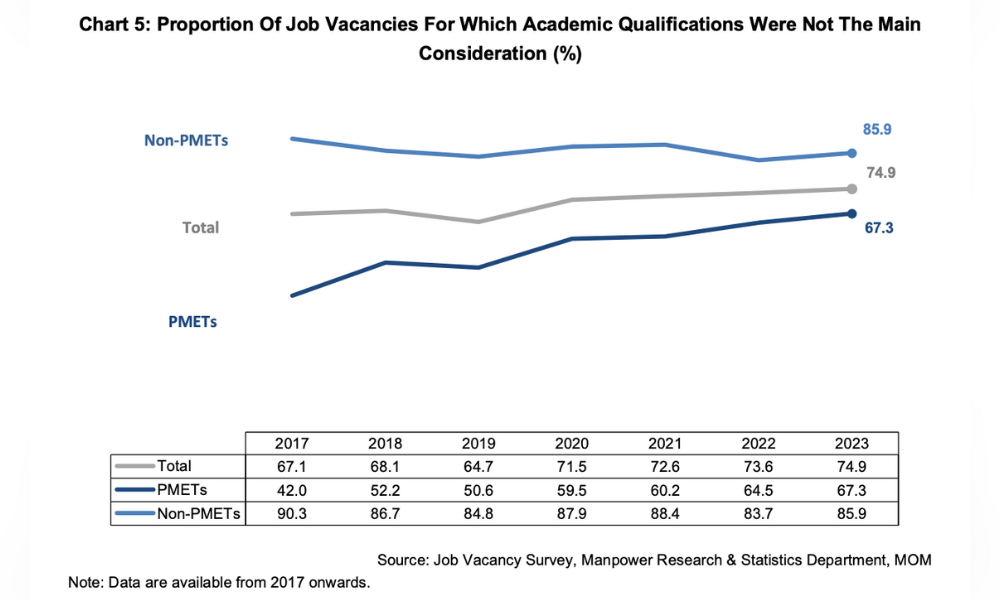
Employers also more willing to set aside educational background for relevant skills

Newly created positions in Singapore made up nearly half of vacancies in 2023, as job openings continue to outnumber jobseekers, according to a new report.
The proportion of newly created positions reached 47.3% in 2023, much higher than the 38.7% in 2022, according to the Job Vacancies 2023 report from the Ministry of Manpower.
"The majority of these newly created positions arose due to business expansion into existing and new functions. This reflects the evolving nature of our economy and the accompanying changes in manpower demand," MOM said in a statement.
By industry, the Information and Communications sector had the highest proportion of vacancies for new positions with 72.8%. Coming in second is the Construction sector with 65.7%, and then Food and Beverage Services sector with 57.2.%

The proportion of vacancies for Professionals, Managers, Executives and Technicians (PMETs) also continued to grow to 57.2% in 2023, up from 56% a year prior.
"The steady increase in PMET share of job vacancies over the decade was a result of the higher demand for skilled workers," MOM said.
This is most evident in sectors such as Information & Communications (15.2%), Financial & Insurance Services (10.7%), Professional Services and Health (10.6%), and the Social Services (10.4%), according to the report.
By role, the Software, Web, and Multimedia Developer position was the top PMET job that was unfilled for at least six months, followed by the Registered Nurse and Other Nursing Professional roles.
Lack of necessary specialised skills was among the top reasons why PMET jobs remain unfilled, as well as the lack of necessary work experience, the report added.

"Employers with hard-to-fill vacancies are encouraged to improve the attractiveness of their jobs so that they can tap on a larger talent pool to fill vacancies," MOM said.
It urged employers to transform the said positions by giving them a higher value to businesses and making them more attractive to jobseekers.
"They can also implement flexible work arrangements such as flexi-hours and telecommuting can support workers who may be otherwise unable to take on a job due to personal demands such as caregiving," MOM said.
As Singapore's labour market remain tight, the report found that employers are starting to show more willingness to consider other aspects of a candidate's character aside from educational background.
The proportion of job vacancies that didn't mainly consider academic qualifications went up to 74.9% in 2023, higher than the 73.6% in 2022.
According to the report, 68.3% of employers are also open to candidates with lower-than-required qualifications as long as they have relevant work experience, skills, or attitude.
"This suggests that while academic qualifications are still relevant in hiring decisions, there is an increased willingness among employers to also consider applicants' relevant experience and skillsets," MOM said.

According to MOM, employers who are more flexible and open to a wider talent pool are more successful in filling their vacancies.
"We encourage more employers to adopt skills-based hiring and tap into transferable skills and experiences," MOM said.
HR professionals can be equipped in handling skills-based hiring by taking certification from the Institute of Human Resource Professionals (IHRP), according to the ministry.
"IHRP certified professionals will be able to tap on curated HR resources, keep abreast of latest manpower policies and learn from strong expertise in the certified community," it said.